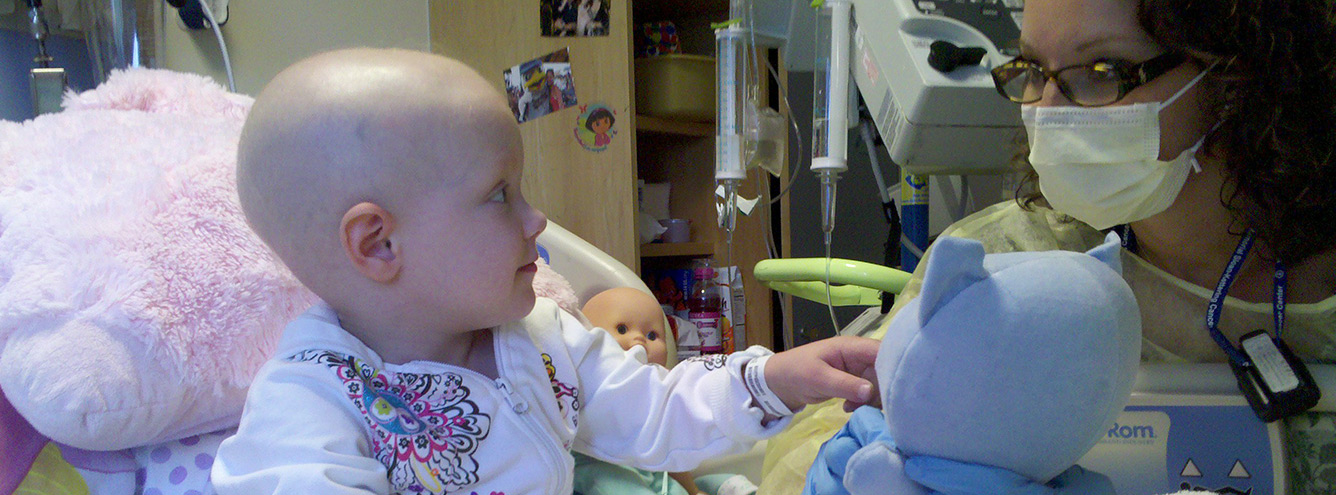Diarrhoea during chemotherapy occurs when the lining of the digestive tract is irritated by treatment.
Intestinal infections and anti-emetics also cause diarrhoea.
Diarrhoea will cease once chemotherapy ends and the body’s immune system is adequately recovered.
Diarrhoea may range from frequent, soft stools to copious liquid stool.
Keep the anal area clean and dry to reduce infection risk. Wash with warm water and mild soap, and dry gently after all bowel movements.
Drink Lots
Diarrhoea depletes body fluid, which can lead to dehydration and other complications.
Ensure your child drinks plenty of liquids to replace lost fluid. Aim for 3% of healthy body weight per hour (if tolerated), e.g. 5kg = 150ml per hour; 10kg = 300ml per hour; 15kg = 450ml per hour. Continue this level of fluid intake for 4 hours after the diarrhoea stops.
The type of fluid your child drinks can make a huge difference. Plain water is rarely effective in preventing or resolving dehydration as it is not absorbed well, and may actually increase diarrhoea and dehydration.
Do not give very hot and very cold drinks as these can increase intestinal contractions.
Do not give carbonated (fizzy) drinks as they pass rapidly through the digestive system, further irritating the bowel. They also draw fluid from the bloodstream into the intestines, increasing thirst and dehydration.
Do not give diet and sport drinks. Diet drinks contain too little sugar, while sports drinks like lucozade and Gatorade contain too much.
Offer mild room temperature fluids such as sweet fruit juice (e.g. peach or mango), peppermint cordial or pure coconut water (see below).
Rehydration Drinks
If you buy oral rehydration salts (ORS), carefully follow the instructions when making up the solution. Too little water in the solution can be very dangerous, while too much will make the solution ineffective.
You can make your own solution at home using table salt and sugar or fruit juice, following one of the two recipes below. Sugar is essential in the solution to regulate absorption of both salt and water. NEVER give a salt water solution without adding sugar.
Follow the measurements precisely. Not all teaspoons are equal to 5ml. The barrel of a syringe may be a useful alternative to measure the salt and sugar. If you are unsure about measurements, too little salt is much safer rhan too much. Too much salt can be lethal, especially to a young child.
Fruit Juice Rehydration Drink
• One level 5ml teaspoon of dry table salt
• 250ml of sweet fruit juice, such as mango or guava
(do not use acidic juices like orange or pineapple).
• 750ml of cool boiled or bottled water
Sugar & Salt Rehydration Drink
• One level 5ml teaspoon of dry table salt
• Eight level 5ml teaspoons of granulated sugar
• One litre of cool boiled or bottled water
Coconut Water Rehydration Drink
Coconut water / coconut juice (the clear liquid from immature – green – coconuts) is an effective oral rehydration fluid. Use only pure coconut water, NOT prepared coconut water drinks.
Do not use coconut milk (derived from the flesh of mature coconuts) as it has a high fat content and variable sugar and electrolyte concentrations that may make dehydration worse.
Boost Potassium Levels
Potassium levels are severely reduced by diarrhoea. This naturally occurring mineral helps the body regulate water supply and healthy cardiac function. Low potassium can cause an irregular heartbeat and very painful cramp.
Serve drinks rich in potassium such as banana or mango juice, or food such as baked or mashed potato, broccoli, asparagus, mushrooms and halibut.
Food
Avoid food containing edible seeds or skins, with shells or an acidic taste, as these further irritate the bowel. Examples are grapes, berries, oranges, tomatoes, peas, sweet corn, baked beans, lentils and nuts.
Do not serve greasy, fatty, spicy or sweet food (except natural fruit), or foods with added starch.
Serve wholemeal bread, pasta and rice.
Serve bland, low fibre foods such as applesauce, fish and skinless turkey or chicken.
Seek Medical Advice
Keep a record of your child’s bowel movements: frequency and volume. This will help the doctor if you need to seek medical attention.
Consult your child’s doctor before giving any non-prescription medication for diarrhoea or to treat sore skin around the anus. A stool test may be ordered to identify possible infection. Specific ointments may be suggested for use after each bowel movement.
Consult the doctor immediately if your child has
• blood in the stool
• signs of dehydration
• significant pain with bowel move¬ments,
• low blood counts.


